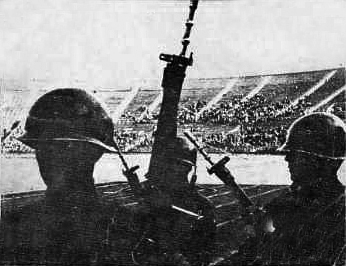
“Before arriving at the almost universally-accepted ‘American Civil War,’ a vast assortment of names were applied to the conflict.”
THE UNION AND the Confederacy had violently differing views on issues like states’ rights and slavery. Not surprisingly, they couldn’t even come to a consensus over what to call the very conflict that divided them.
Before arriving at the almost universally-accepted “American Civil War,” a vast assortment of names were applied to the four-year struggle. And how one chose to refer to the events of 1861 to 1865 often depended on which side they were on.
To Southerners, the conflict was often called the “War of Secession” or even the high-minded sounding “War for Southern Independence.” Other Confederates called it the “War of Northern Aggression” — a name that persists within some quarters to this very day. “The Second War of Independence” was also used, as was the curious if not ironic “War of Northern Arrogance.”
Those north of the Mason Dixon Line referred to it at the time by such titles as the “War for the Union,” the “War of the Rebellion,” or simply the “Great Rebellion.”
Pundits, critics, editorialists of the day (particularly those critical of the White House’s prosecution of the conflict) often snidely called it “Mr. Lincoln’s War,” while some anti-slavery activists called it the “War for Abolition.”
Other names emerged in the years following the South’s surrender. These included: the “War Between the States,” the “Freedom War,” or the “War Against Slavery.”

Some, prominent figures of the day did occasionally refer to the conflict as a “civil war” – a reference that’s even contained in the second paragraph of Lincoln’s own Gettysburg Address – however the name didn’t gain widespread currency until some years later.
For a complete listing of American Civil War names, check out CivilWarHome.com.

Naming Battles
Not surprisingly, some of the war’s major clashes also go by different names that depend largely on where in the U.S. you are standing.
For example, the first major engagement of the conflict was fought near a small creek named Bull Run, which is how Northerners remembered the battle. On the other hand, Southerners named the very same July 21, 1861 clash after the nearby railroad stop Manassas Junction (or simply Manassas).
On Sept. 17, 1862, the Yankees fought the Rebels on a piece of land in Washington County, Maryland. Throughout the Union, the victory became known as Antietam after a local stream, while the Confederacy referred to the bloody affair as the Battle of Sharpsburg in reference to the nearest town.
Similarly, the Battle of Shiloh in Tennessee was also known in the north as the Battle of Pittsburg Landing, while the Confederates named the clash at Pea Ridge, Arkansas the Battle of Elkhorn Tavern.
(Originally published in MilitaryHistoryNow.com on Oct. 13, 2013.)









